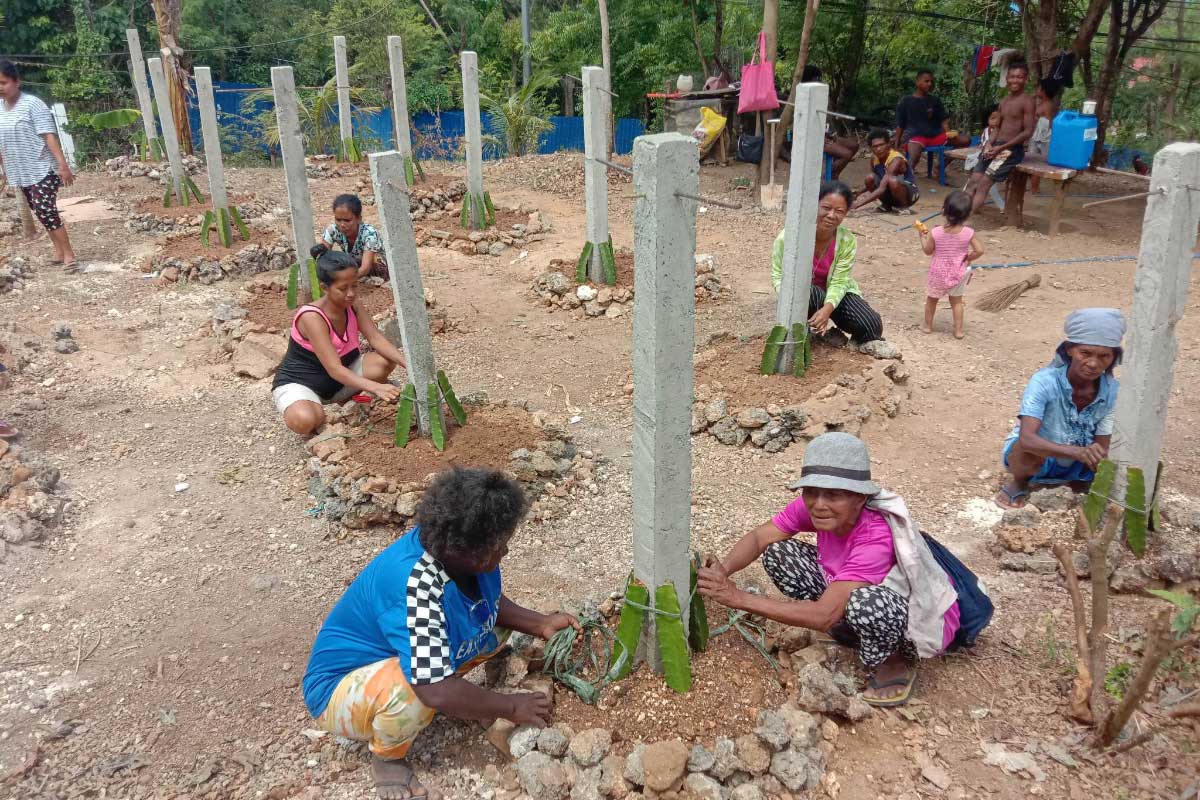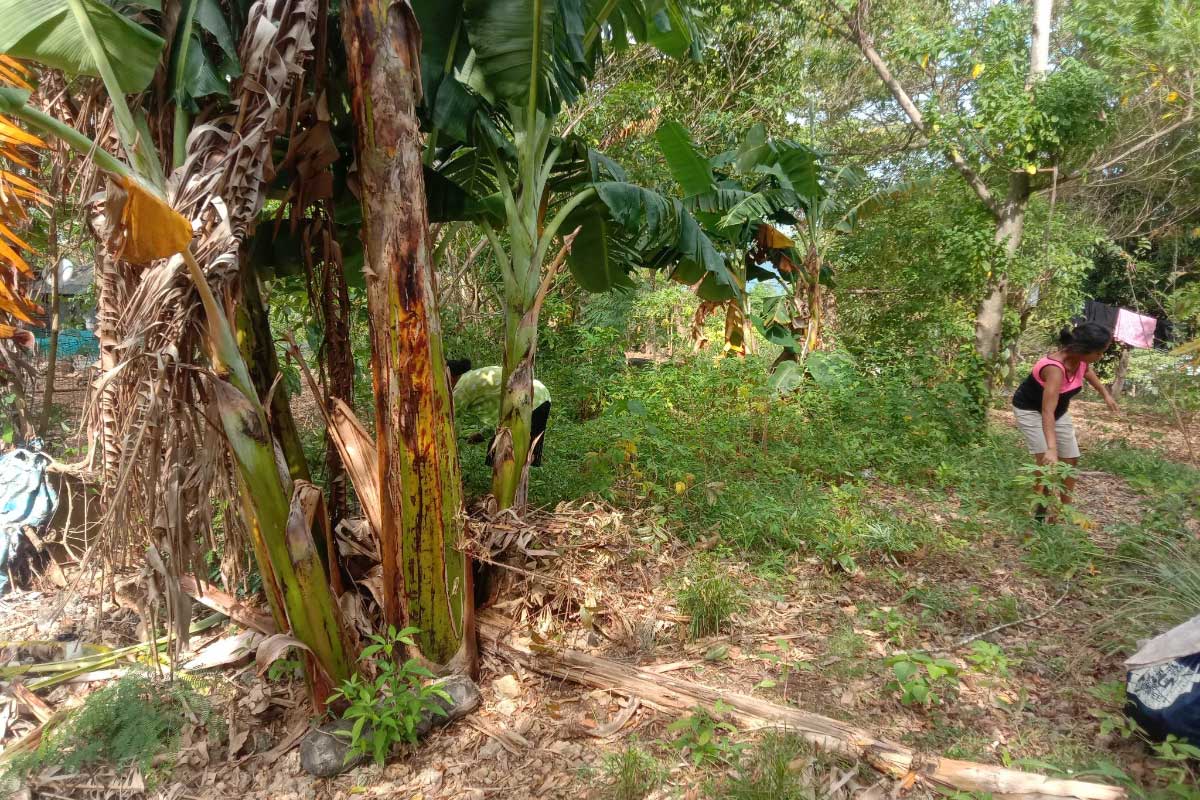By Joseph B.A. Marzan
The Department of Agrarian Reform (DAR) in Region 6 granted the protests filed by property development companies against Certificates of Land Ownership Awards (CLOAs) issued to Indigenous Peoples (IPs) in Boracay Island in Malay, Aklan in 2018
The reason: the lands given to the Atis in the island in 2018 were unsuitable for agricultural use.
Four separate resolutions were issued by DAR-6 Regional Director Sheila Enciso siding with Digna Elizabeth Ventura (March 15), Bohol Regal, Inc. (April 26), Jeco Development Corporation (April 26), and Y Investment Philippines, Inc. (May 3).
Ventura has been the President of Anchor Land since 2011 according to the company’s website.
The lands were personally awarded by former President Rodrigo Duterte to the Boracay Ati Tribal Organization (BATO) and the Boracay Tumandok Agrarian Reform Beneficiaries in 2018.
All DAR resolutions cited a certification on soil testing conducted by the Bureau of Soils and Water Management (BSWM) and Highlight of Accomplishments by the bureau’s Agricultural Land Management and Evaluation Division (ALMED). These two bureaus are both under the Department of Agriculture.
In the three recent resolutions, Enciso emphasized the following points from the BWSM’s certification:
- The area is characterized by excessively drained very shallow sandy clay textured soils derived from high limestone hills belongs to Faraon series presence of common to many stones and gravels size coralline limestone and exposed coralline limestone bedrock and rock outcrops subject to severe erosion. In general, the slope is 18-30% characterized by rolling to moderately steep terrain[.] Due to biophysical constraints that hamper cultivation. The applied area is marginally and not suitable for agricultural production;
- The elevation of the area ranges from 11-29 Meters Above Sea Level (MASL) surrounded by built up and at present is dominantly underutilized and idled covered with shrubs and very few patches of unproductive low-elevation vegetables;
- The area belongs to Climatic type Ill and is not irrigated land, not irrigable land and not covered by irrigation projects with firm funding commitments;
- The area is outside the Network of Protected Areas for Agricultural and Agro-industrial Development (NAPAAAD) and Strategic Agriculture and Fisheries Development Zones (SAFDZ) (see annex 4&5), and no longer viable for agricultural production; and
- The area is highly recommended for Eco-Tourism Zone and or Medium Density Tourist Commercial that will conform to the comprehensive land use plan and zoning map of the municipality of Malay, Aklan Province.
The resolution directed the protestors to file an application for the cancellation of the CLOA over the lands which are the subject of the case.
Lawyer Geony Licera-Gregorio, head of DAR-6’s Legal Assistance Division, explained to Daily Guardian that the resolutions did not automatically cancel the CLOAs, but merely refers to the coverage of the land in question under the Comprehensive Agrarian Reform Program (CARP).
Gregorio said the next step is for the developers to seek the cancellation of the land grant. If a protestor does not file for the cancellation of the CLOA, ownership of a property under the said certification remains with the awardee of the land or the Atis.
Under Republic Act 9700, only the DAR secretary can approve or cancel CLOAs.
The application may not proceed until the resolution by the DAR regional office becomes final, which will only happen if the affected awardee does not file a motion for reconsideration.
But BATO’s lawyers, Daniel Dinopol and Kchyrziahshayne Dyñelle Dinopol, told Daily Guardian that they have filed a motion for reconsideration (MR) against the March 15 resolution.
Since they only received the other resolutions last May 10, the Dinopols said they will also file similar MRs against the DAR decisions.
The main point in their argument is on BSWM’s mandate, which they claim is only limited to the determination of the types of crops which are suitable to the soil, and not the suitability of the soil for agricultural use.
“We questioned the findings of the [BSWM], because its mandate is to determine the composition [and] minerals of the soil, to advise the [DA] and the farmer of the [soil composition], on what crops would be suitable for [that land]. That doesn’t mean that the [BSWM] can determine whether or not the land is suitable for agriculture,” Atty. Daniel Dinopol said.
He added that the Ati IPs have been using the awarded land since 2018, and have even grown produce to the point that they have started providing lemongrass to one of the hotels in the island.
“They have been making the land productive, planting papaya, avocadoes, coconuts, and lemongrass. In fact, one of the hotels in Boracay Island had been getting lemongrass from them. They also have sweet potatoes, chili peppers, and calamansi. They are also raising range chickens and ducks,” he explained.
“According to the Ati people we’re working with, there’s no land unsuitable for planting. Even the sides of churches and wooden beams can house plants. It’s just a matter of suitability to a particular crop,” he expounded further.
Around 10 to 15 families settling and tilling an estimated 4,800 square meters of land would be affected by the DAR resolutions.
Atty. Dinopol quoted Ati tribal chief Delsa Justo in questioning the DAR-6’s move, given that the CLOA also came from their agency.
“The Ati [IPs] told me, ‘What kind of government is this, where the DAR gave us [land] as an order of [Duterte], and the DAR would also be the one cancelling?’ We told them that we will do it in the legal way but we cannot answer them as much,” he said.
Explaining the basis of the decision, Gregorio said the BSWM’s findings were necessary for the classification of the land as being suitable for agricultural use under Republic Act No. 6657 (Comprehensive Agrarian Reform Law of 1988).
“The gist of the certification is based on the soil test, so the [BSWM] declared the lands [in Boracay] as not suitable for agriculture despite the vegetation. They did not consider [the produce] in their certification. What they considered was the characteristics in the soil, which was not suitable for agricultural production,” she said.
She added that the fact of the Ati’s agricultural production was included in the motion for reconsideration already filed, and would be reviewed by Enciso.
Atty. Kchyrziahshayne Dyñelle Dinopol said that if the DAR-6 would continue to side with the protesting companies, they would “stretch all legal remedies necessary”.






















